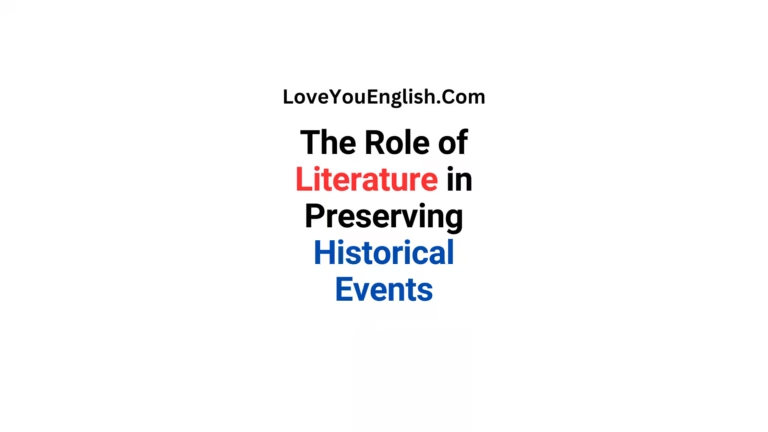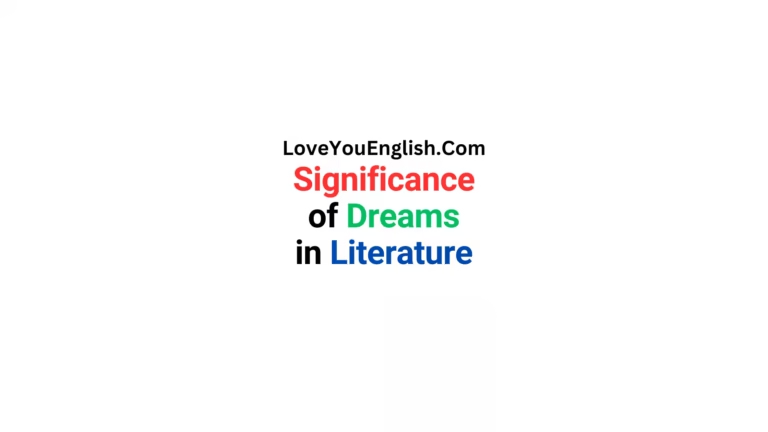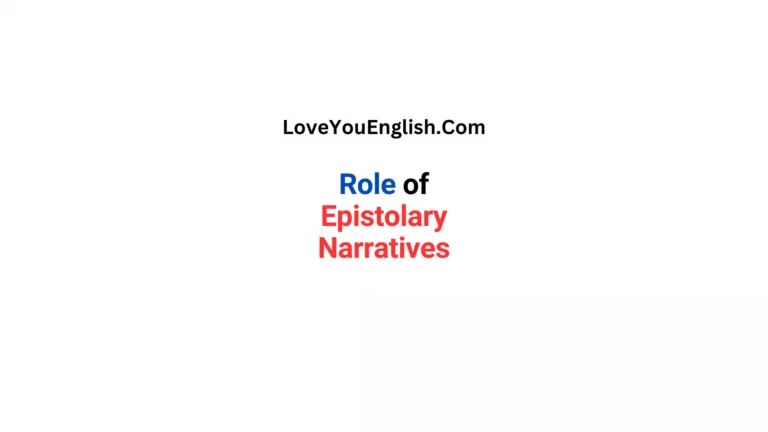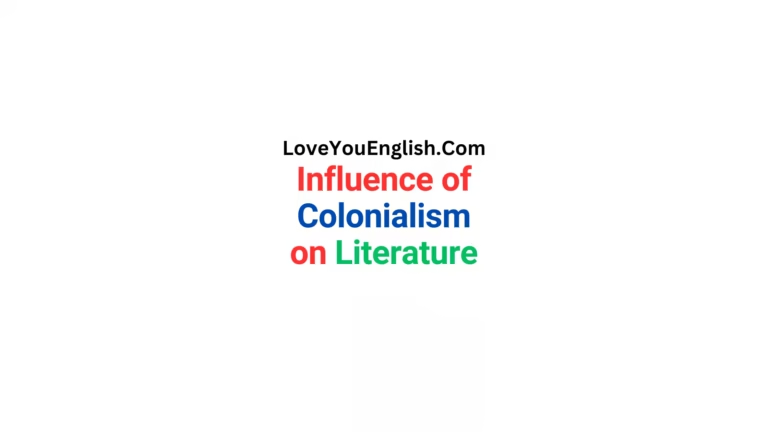The Influence of Greek Mythology on English Literature
Sharing is caring!
The Influence of Greek Mythology on English Literature
Greek mythology is an ancient collection of stories, gods, and heroes that have greatly influenced many cultures around the world, including English literature. These myths, which were passed down from ancient Greece, have shaped the way we think about literature, storytelling, and even language today.
Here we will explore how Greek mythology has influenced English literature, with examples of its impact on stories, characters, and themes in famous works of English literature.
What is Greek Mythology?
Greek mythology refers to the body of myths and legends that originated in ancient Greece. These myths tell stories about gods, goddesses, heroes, and creatures that played important roles in shaping the world. Some of the most famous gods in Greek mythology include Zeus, the king of the gods; Hera, his wife and queen; and Athena, the goddess of wisdom. Heroes like Hercules, Odysseus, and Perseus also feature in these myths, embarking on incredible adventures and overcoming many challenges.
The influence of Greek mythology on English literature is evident in the works of many famous authors, both ancient and modern. Writers from different periods have borrowed themes, characters, and even entire stories from Greek myths to create their own works. This connection between Greek mythology and English literature is a testament to the enduring power of these ancient stories.
How Greek Mythology Influenced English Literature
Greek mythology has influenced English literature in several ways. From themes and symbols to the use of characters and plot structures, Greek myths have been a source of inspiration for many English writers. Let’s explore some of the most notable influences:
1. Mythological References in English Literature
One of the most obvious ways Greek mythology has influenced English literature is through direct references to mythological figures and events. Many English writers, from poets to playwrights, have included gods, goddesses, and heroes from Greek mythology in their works.
For example, in William Shakespeare’s A Midsummer Night’s Dream, there are many references to Greek mythology. The character of Puck, also known as Robin Goodfellow, is a mischievous sprite, similar to the Greek god Pan, who is known for causing trouble and playing tricks on humans. In another famous play, Julius Caesar, Shakespeare tells the story of the Roman general and his tragic downfall, which was influenced by the ancient Greek tragedies.
Another well-known example is in John Milton’s epic poem Paradise Lost. Although the story is based on the Bible, Milton makes several references to Greek mythology. For instance, the character of Satan in Paradise Lost is often compared to the Greek titan Prometheus, who defied the gods by giving fire to humans.
2. Mythological Themes in English Literature
Greek mythology introduces several important themes that have been carried into English literature. Some of these themes include the struggle between good and evil, the consequences of pride, the search for identity, and the challenges of fate and destiny.
One of the most prominent themes in Greek mythology is the idea of hubris, or excessive pride. In many myths, characters who display hubris are punished by the gods. This theme is also present in English literature, particularly in tragic works. In Shakespeare’s Macbeth, the main character, Macbeth, becomes consumed by ambition and pride, leading him to commit terrible deeds and eventually face his downfall. Similarly, in Mary Shelley’s Frankenstein, Victor Frankenstein’s pride in his scientific abilities leads to the creation of the monster and his own destruction.
The theme of fate is another key element in both Greek mythology and English literature. In Greek myths, the gods often control the destinies of mortals, and no matter how hard they try, humans cannot escape their fate. This theme appears in many works of English literature, especially in tragedies like Oedipus Rex by Sophocles, which was later studied and influenced English playwrights.
3. The Use of Greek Mythological Characters
Many English authors have used Greek mythological characters in their works. These characters, whether gods, goddesses, or heroes, often serve as symbols or representations of certain ideas or themes. Writers have adapted these characters to fit their own stories, giving them new meaning in a different cultural context.
For example, in the poem The Iliad by Homer, the Greek hero Achilles is portrayed as a fierce warrior whose pride leads to his downfall. In English literature, the character of Achilles has been adapted in various ways, often symbolizing the consequences of unchecked pride and ambition. For instance, in Tennyson’s Ulysses, the hero Ulysses, also known as Odysseus in Greek mythology, is a representation of the eternal pursuit of adventure and knowledge.
Another example is in The Odyssey, where Odysseus’ journey home after the Trojan War is filled with encounters with various mythological creatures, such as the Cyclops, Circe, and the Sirens. This epic poem has been a source of inspiration for countless English writers, from James Joyce’s Ulysses to modern adventure stories.
4. The Creation of Archetypes in English Literature
Greek mythology has also contributed to the development of literary archetypes in English literature. Archetypes are recurring symbols, themes, or characters that appear in stories across cultures and time periods. Many of these archetypes can be traced back to Greek mythology.
For example, the hero’s journey, a common structure in storytelling, is based on the adventures of heroes in Greek mythology. In many Greek myths, a hero embarks on a journey to prove themselves, faces challenges, and ultimately undergoes a transformation. This structure has been used in numerous works of English literature, from Beowulf to Harry Potter.
The character of the tragic hero, another archetype found in Greek mythology, has also influenced English literature. A tragic hero is a character who has a fatal flaw that leads to their downfall. This character type can be seen in works like Macbeth, Hamlet, and Othello. These plays, written by Shakespeare, are directly influenced by the tragic heroes of Greek mythology.
5. Greek Mythology and Poetry
Greek mythology has also had a significant impact on English poetry. The classical beauty and depth of Greek myths have inspired poets for centuries. Writers like Alexander Pope, John Keats, and Percy Bysshe Shelley were influenced by the themes, characters, and stories of Greek mythology.
In Percy Bysshe Shelley’s poem Adonais, the poet mourns the death of John Keats, comparing his tragic death to the myth of Adonis, a beautiful youth loved by the goddess Aphrodite. Shelley draws on the mythological themes of beauty, love, and death, showing how Greek mythology can be used as a framework for understanding human emotions and experiences.
Similarly, John Keats’ Endymion is inspired by the Greek myth of Endymion, a mortal loved by the moon goddess Selene. The poem explores themes of love, beauty, and the idealization of the divine, all of which are central to Greek mythology.
Conclusion
Greek mythology has had a lasting and profound influence on English literature. From the themes and archetypes that appear in stories to the direct references to gods, heroes, and monsters, Greek myths continue to shape the way we understand literature and storytelling today. The characters, themes, and symbols from these ancient myths still resonate with readers and writers alike, proving that the power of Greek mythology will continue to influence English literature for many years to come.
Whether it’s the tragic downfall of a hero, the power of the gods, or the eternal struggle between good and evil, Greek mythology has left an indelible mark on the literary world. By studying these myths, we can gain a deeper understanding of both ancient cultures and the way literature has evolved over time.
More topics:
- 10 Underrated Authors in English Literature
- Exploring Feminist Themes in Modern English Literature
- Famous Poets of English Literature and Their Masterpieces
- The Role of Shakespeare in Shaping English Literature
- Exploring Themes of Love and Loss in English Literature
- The Role of Humor in Shakespeare’s Comedies
- The Concept of Utopia in English Literature
- How to Approach Literary Criticism
Sharing is caring!

